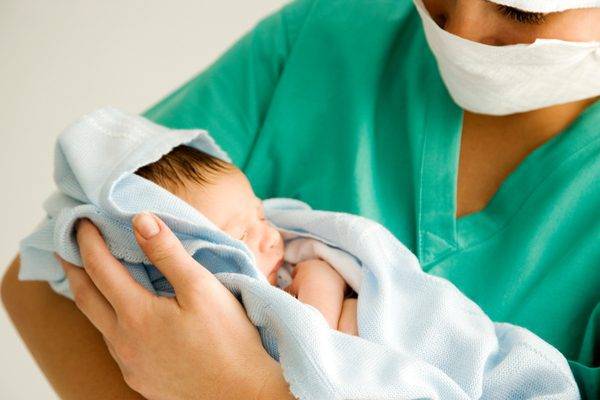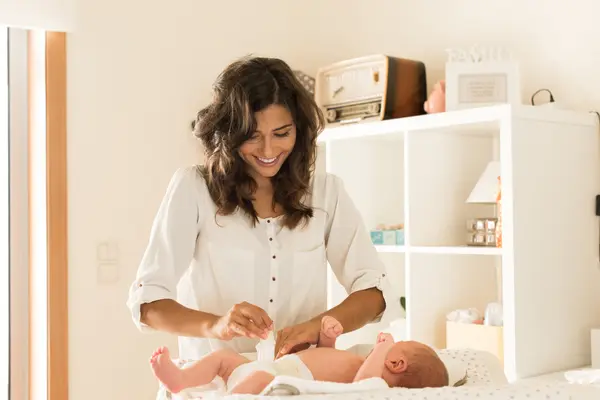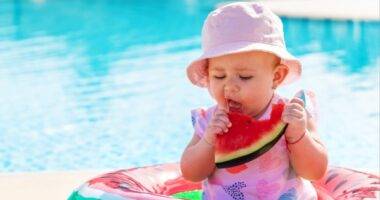Parents everywhere have so many questions during this unprecedented global pandemic. Do babies need to wear protective masks? What happens if a mom of a newborn gets COVID-19? Is it still safe to breastfeed? Can visitors still meet the new baby? Should we still go to well visits?
Dr. Drew Wright of Greenvale Pediatrics in Hoover, Alabama, talked with Babypalooza to clear up these questions and more. Read on to find out what he had to say.
Babies Shouldn’t Wear Masks
After months of advising otherwise, U.S. experts and the CDC have officially switched gears and recommended that people wear cloth face masks in public places where social distancing is difficult.
For many parents, the recommendation immediately prompted a question: Should my baby wear a mask during the COVID-19 pandemic?
Definitely not, according to Dr. Wright.
“Infants and young children should not wear face masks due to the possibility of restricting their airflow,” he told Babypalooza.
Dr. Wright cited the CDC’s official recommendation: “Cloth face coverings should not be placed on young children younger than 2 years of age, anyone who has trouble breathing, or is unconscious, incapacitated or otherwise unable to remove the cover without assistance.”
What Happens If a New Mom Tests Positive?
For moms of newborns, the pandemic can be particularly scary. If a mother is diagnosed with COVID-19, several steps will be taken to minimize the risk of virus transmission from mom to baby, according to the American Academy of Pediatrics (AAP).
During the hospital stay, mother and baby will be separated temporarily to reduce that risk. If they are in the same room, they should maintain a 6-foot distance to reduce risk.
In most cases, the newborn will be tested for SARS-CoV-2 (the virus that causes COVID-19) before being discharged from the hospital.
If the infant’s test is positive, the baby will receive frequent care from a pediatrician after leaving the hospital. If the infant’s test is negative, they will be sent home with a healthy caregiver. Mom should try to maintain a 6-foot distance and follow all proper hygiene protocols.
If the baby can’t be tested, the hospital will treat the baby as though the test was positive. That means there will be a 14-day observation period (plus, the new mom will need to follow proper hygiene protocols).
Thankfully, if a mother tests positive for the virus, that does not necessarily spell the end of the breastfeeding relationship.
“So far, studies have not detected the virus in mother’s breastmilk,” Dr. Wright says.
The AAP recommends that moms who have COVID-19 should pump or express their breastmilk (keeping in mind proper hygiene) and then have a non-infected caregiver feed the newborn using a bottle.
How to Keep Newborns Safe
According to Dr. Wright, COVID-19 generally tends to cause just a mild illness in children. However, he says, families still must be vigilant to keep their newborns safe.
“As much as everyone wants to come see the new baby, at this time it is best to limit visitors,” Dr. Wright says. “Family members can see your baby through a window or from a comfortable 6-foot distance outside.”
Dr. Wright also pointed out that several other illnesses are still circulating during the pandemic, so caregivers still neeed to follow their pediatricians’ advice about immunizations and well visits.
“Offices are taking every measure possible to maintain a safe environment for these essential well visits,” Dr. Wright says. “Check with your child’s pediatrician to see how they are working to keep your child safe—not just from COVID-19, but from other illnesses as well.”
Did you just welcome a brand-new baby? We’d love to hear from you!



